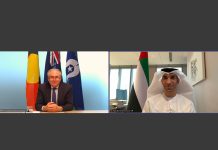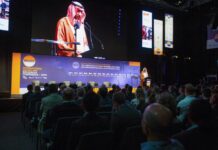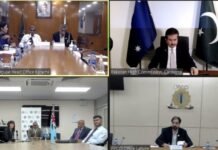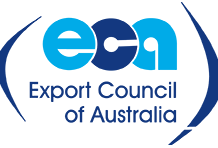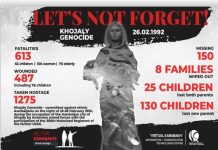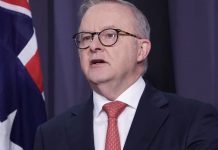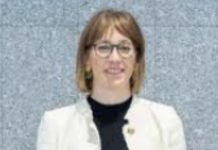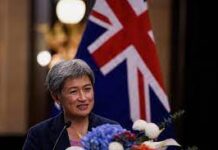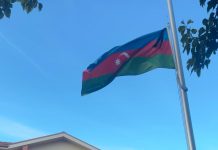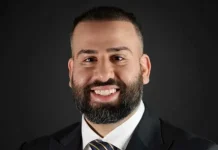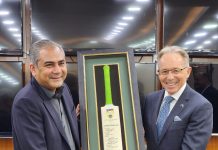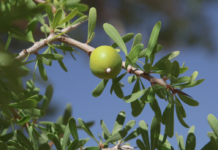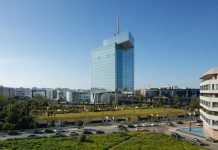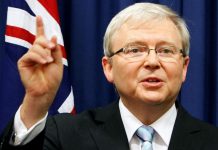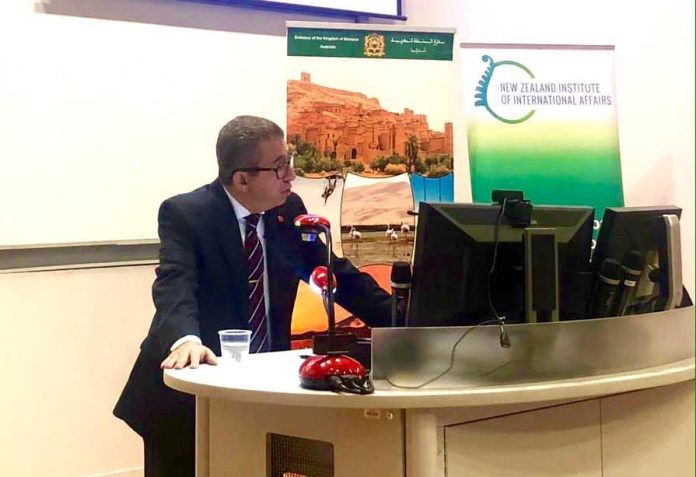Ambassador of Kingdom of Morocco to Australia, New Zealand and the Pacific Island Karim Medrek has reiterated that Kingdom of Morocco believes in peaceful co-existence and committed to full internal autonomy to the Sahara region and rejected false allegations by the separatists.
He was addressing a conference entitled “The Sahara Issue: Challenges and Prospects” at the New Zealand Institute for International Affairs.
Conference was organized as part of the Moroccan week in New Zealand which takes place from 28 to 03 May 2019.
Senior government officials, representatives of the Ministry of Foreign Affairs, Academic Personalities, Civil Society members and Students attended the conference.
This Conference constituted an occasion to introduce the attendees into the historical and legal foundations of the Moroccan sovereignty on its southern provinces.
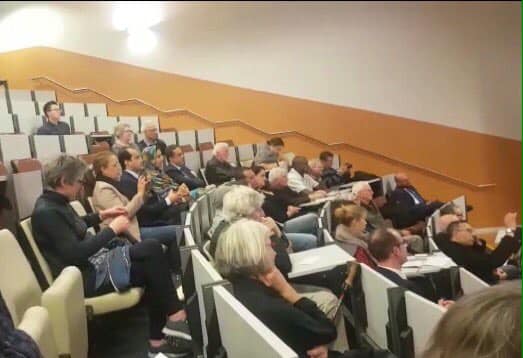
During this Conference, the Ambassador tackled the evolution of the Sahara issue within the United Nations, highlighting the fact that the Kingdom has been the only defender of the liberation of this territory during the Spanish colonization.
Mr. Medrek devoted part of this presentation to clarify the evolution of the political process aiming to resolve this issue, especially the transition from the organization of a referendum to the negotiation of a lasting, just and mutually acceptable solution as stipulated by the competent UN institutions.
In this regard, the Ambassador shed lights on the preeminence of the Moroccan initiative for autonomy, supported by the international community, noting that it is in conformity with the standards of the international law and the best practices for peaceful conflict resolution.
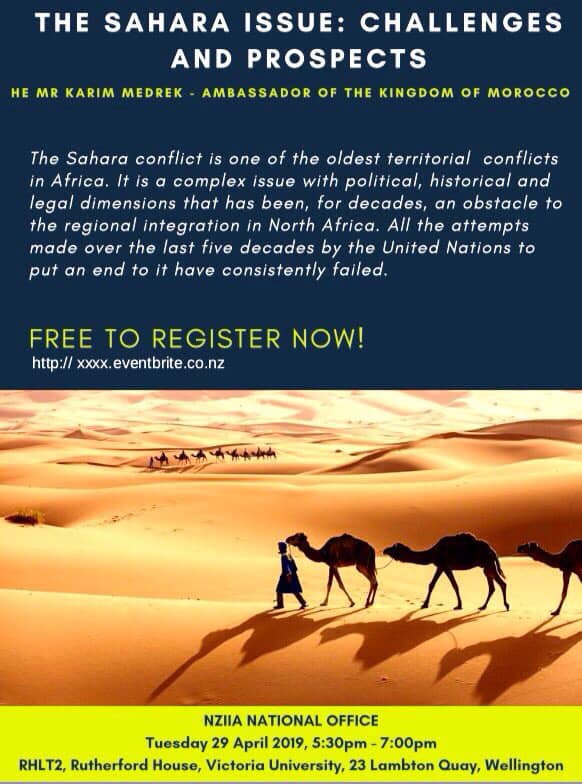
According to him, this initiative is the result of a long process of inclusive consultations in Morocco, including in the Sahara region with all components of society as well as consultations with major stakeholders and international partners.
Mr. Medrek also recalled the Kingdom’s commitment to the UN process in accordance with Resolution 2440 which states “that realism and a spirit of compromise by the parties are essential to achieve progress in negotiations”, and encouraging “the neighboring countries to make important, active contributions to this process”.
The Ambassador did not fail to underline the lack of representativeness of the polisario when it comes to representing the populations of the southern provinces, especially since the legitimate representatives of its populations participate, actively, in this political process and have real democratic and popular legitimacy within the framework of Moroccan institutions.
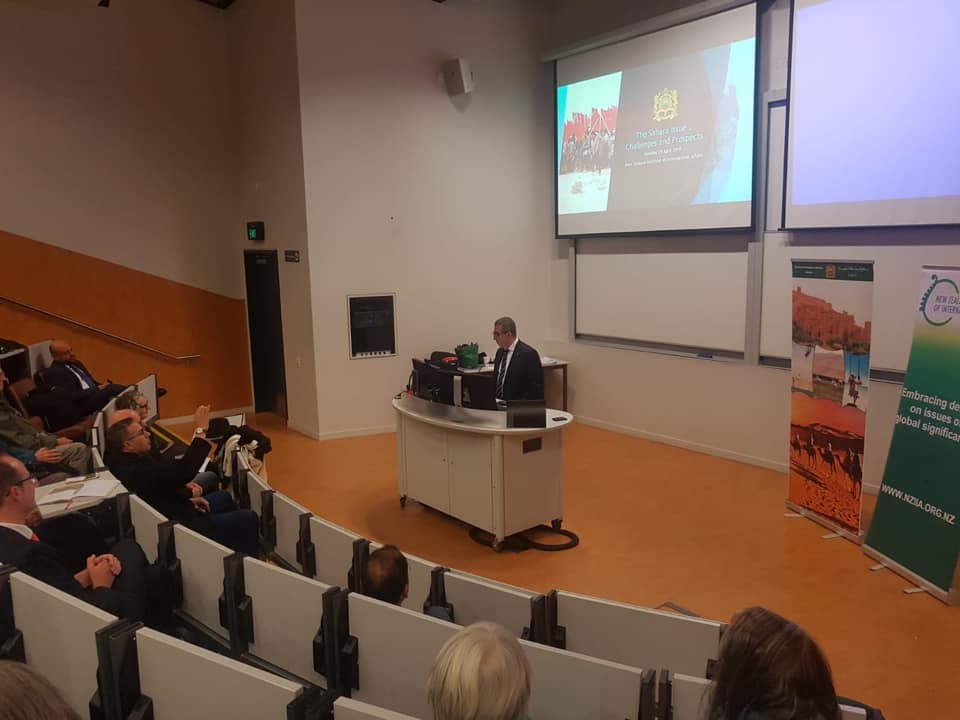
Moreover, the Ambassador seized the opportunity of this Conference to counter some false allegations persistently put forward by the separatists, especially with regard to the notion of occupation, the exploitation of natural resources, and the alarming situation of human rights in the Tindouf Camps.
The Ambassador of Morocco highlighted the regional development model for the Sahara region, which represents a real roadmap, part of an advanced regionalization, encompassing inter alia the economic, social and environmental aspects and cultural.
Mr. Medrek also highlighted the Maghreb’s need to unlock synergies and resolve a number of issues in the region, including security issues, and move forward in resolving the Sahara conflict to establish peace and stability in the Mediterranean.



